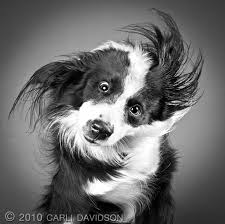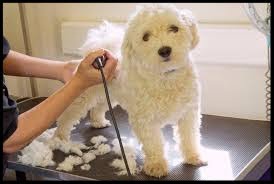Keeping you informed
Newsletter December 2017

Christmas is just 3 weeks away and as we get prepared for the festivities and get excited putting up the Christmas tree and decorations, our pets need to be prepared as well.
Christmas brings with it lots of celebratory food. Unfortunately some of this food (or what comes with it) can be a hazard for our pets. Keep a look out for:
- Skewers from barbecued kebabs and fruit kebabs.
- Fatty meat offcuts (can lead to pancreatitis).
- Chocolate.
- Sultanas and raisins in fruit cakes and puddings.
- Onion and garlic.
Is your dog or cat still a rascally youngster or young at heart? Then watch out for christmas decorations such as tinsel and beads, candles and lights and even the tree may not be safe from some trying to climb it.
Have a safe and Merry Christmas and New Year!
Pet of the Month: Flynn
Say hi to Flynn – what a handsome boy! Flynn came to see us recently for a sore back left knee (stifle) that was making it hard for him to play as boisterously as he would like to. We performed x-rays of Flynn’s knee, which were consistent with cruciate ligament disease (the same as an ACL in people’s knees – very common in athletes!). This is the most common orthopaedic complaint we see in dogs, especially larger breeds like Flynn.
The most effective recovery from cruciate ligament disease involves surgery, which we organised specialist surgeon Dr. Eugene Buffa to perform on Flynn. His surgery went extremely well and he is now doing very well in recovery and 3 weeks post-op he is already starting to venture out on some short walks (on lead only so he doesn’t accidentally overdo it!).
We hope Flynn enjoys his complimentary bag of Royal Canin Mobility food – this food contains a range of supplements such as glucosamine and omega-3 fatty acids to help him recovery quickly and keep arthritis at bay!
Thunderstorms and Fireworks-is your dog prepared?
It’s now the summer storm season and it’s not just us that can get a bit scared of the loud booms and the lightning flashes! Storm phobias are quite common in our companion animals, especially dogs.
Some of the more common signs of phobias seen are:
- Escape (sometimes resulting in self injury)
- Inappropriate toileting
- Vocalising, trembling, hiding, pacing and salivating
- Destructive behaviours
Many animals that have storm phobias may also have a fear of loud noises such as fireworks, music and gunshots.
So how can you manage storm incidents?
- Provide a den or hiding place where your pet can feel safe and comfortable (a crate or cardboard box just big enough for them to lie down and turn around is perfect).
- An Adaptil collar or diffuser releases pheromones (similar to those released by a mother dog when her pups are feeding) which can increase your dog’s feeling of security.
- Make sure all windows, doors and cat flaps are securely closed during the storm. This will reduce the chances of your pets escaping.
- Provide positive distractions such as new toys, games or chews while the storm is active. Distractions like these are much more effective than cuddling or talking to your pet. Draw the curtains and switch on the TV for some background ‘white noise’ to mask the outside noise.
- Try not to leave your pets alone when the storm is approaching and in full swing.
- DO NOT punish your pet for the behaviour. This will only make your pet more distressed!
If your dog’s nosie phobia is severe and the above strategies are not effective enough, then book an appointment with Katie Bedrossian, one of our nurses with extra qualifications in behaviour training along with a veterinary medical assessment.
Is your Dog shaking its Head?
Summer has arrived and with it comes humidity. This more humid weather is a fantastic breeding ground for germs that love to live in doggy ears. While ear infections can occur in dogs of any sort, dogs with hairy or floppy hairs are more prone to ear problems. This is due to the lack of air circulation around the ear meaning that the ear canal traps debris and creates a moister environment which allows for growth.
Is your dog…
- Scratching at the ears?
- Shaking their head?
- Rubbing their head along the ground?
- Emitting a strange smell that is particularly strong around their ears?
- Inflammed (red and hot) on the skin on the outside of their ears?
- Discharging liquid or excessive wax from their ear?
- Yelping or more resistant to handling around the head, particularly the ears?
If you answered yes to any of the above, your dog needs to see one of our experienced vets for an ear examination.
How can ear infections be prevented?
- If your dog swims regularly, dry out the ears with a cotton wool ball.
- Put cotton wool balls in your dog’s ears while you give them a bath (remember to remove them at the end).
If needing to clean out the ears, use a ear cleaner made for dogs and never use water. Ear cleaners have special gentle cleansers to help remove wax and debris and they quickly dry so the ear canal does not remain moist.
Is your dog too hot or scruffy to enjoy the summer? We can help!
Turramurra Vet is excited to announce that we will now be providing a professional grooming service.
Our groomers Dave and Selena will be working together to give your pooch the perfect haircut for the festive season. Both groomers have completed their courses through Australia’s Premier training centre for dog grooming and are now available to our clients Tuesday-Thursday.
Spots are filling up fast, so please call us on 9988 0198 today to get your pup smelling and looking great this Christmas!





